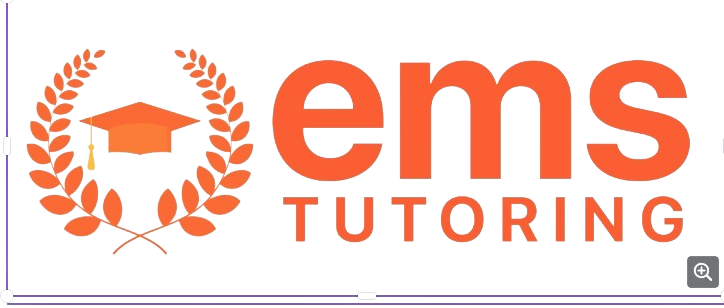How to Pass GCSE Physics: Proven Strategies for Exam Success
Best Ways to Pass Physics GCSE
Physics is an essential subject that teaches us how the world around us works. It is a fascinating subject that involves understanding complex theories, formulas, and laws. Physics is also an essential subject for students who are interested in pursuing higher studies in science and engineering. Passing the Physics GCSE exam is critical as it can open up many opportunities for students. In this comprehensive guide, we will discuss the best ways to pass Physics GCSE and achieve success in this critical exam.
Understand the Exam Format
Before starting your preparation, it is crucial to understand the Physics GCSE exam format. The exam consists of two papers, each lasting 1 hour and 45 minutes. The papers include multiple-choice questions, structured questions, and extended response questions. First paper covers topics such as energy, electricity, and particle model of matter, while the second paper covers topics such as forces, waves, and electromagnetism.
Know the Exam Syllabus
To pass the Physics GCSE exam, it is essential to have a good understanding of the exam syllabus. The syllabus covers topics such as motion and forces, energy, waves, electricity, magnetism and electromagnetism, particle model of matter, and atomic structure. Understanding the syllabus will help you plan your preparation and focus on the topics that need more attention.
Make a Study Plan
Creating a study plan is an essential step in preparing for the Physics GCSE exam. A study plan will help you organize your time effectively and ensure that you cover all the topics before the exam. It is essential to allocate enough time for each topic and plan regular revision sessions. A study plan should also include taking practice tests and past papers to gauge your understanding of the subject.
Use Past Papers and Resources
Using past papers and resources is an effective way to prepare for the Physics GCSE exam. Past papers give you an idea of the type of questions asked in the exam and help you identify the areas that need more attention. You can also use online resources such as study guides, video tutorials, and interactive simulations to improve your understanding of the subject. Some of the popular resources include BBC Bitesize, Physics and Maths Tutor, and My GCSE Science.
Attend Free Lessons
Attending free lessons is an excellent way to supplement your preparation for the Physics GCSE exam. Many organizations offer free lessons that cover various topics in Physics. These lessons are often taught by experienced teachers and cover the exam syllabus in detail. Attending these lessons can help you understand complex topics and clear your doubts.
Intro paragraph
WHAT USERS ARE SAYING:
My son was struggling with Maths, but after using Fantastic he was able to improve his grades significantly. Highly recommend to any parent looking to give their child a boost." - John, parent of a Year 8 student
"I was really struggling with my English exams, but Fantastic gave me links to free lessons which helped me to understand the material in a way that made sense to me. I was able to improve my grades and feel more confident in my abilities. Thank you, Fantastic!" - Rachel, Year 11 student
Focus on Understanding the Concepts
To pass the Physics GCSE exam, it is essential to focus on understanding the concepts rather than just memorizing the formulas. Physics involves understanding complex theories and concepts, and memorizing formulas will not be enough. It is essential to practice solving problems and applying the concepts learned in real-life scenarios.
Take Regular Breaks
Taking regular breaks is an essential part of preparing for the Physics GCSE exam. Studying for long hours can be exhausting and lead to burnout. It is essential to take regular breaks and engage in activities that help you relax, such as going for a walk or listening to music. Taking regular breaks will help you stay focused and motivated.
Free GCSE Physics Resources
There are several free online resources available to help students prepare for Physics GCSE exams. These resources provide a range of study materials, practice questions, and revision tools that can help students improve their knowledge and skills in the subject. Here are some free GCSE Physics resources that students can use:
Seneca Learning – Seneca provides free online courses covering various subjects, including Physics. The platform offers interactive and engaging content, practice questions, and revision tools to help students prepare for their exams.
BBC Bitesize – BBC Bitesize is a popular revision website that provides comprehensive study materials and practice questions for GCSE Physics. The website covers all key topics in the subject and includes video tutorials, interactive quizzes, and revision notes.
Isaac Physics – Isaac Physics is a free online platform that provides challenging physics questions and practice problems for GCSE and A-Level students. The platform offers personalized feedback and explanations to help students improve their understanding of physics concepts.
Exam Solutions – Exam Solutions is a free online platform that provides video tutorials and practice questions for GCSE and A-Level Physics. The platform covers all key topics in the subject and includes detailed explanations and work examples.
Physics Classroom – Physics Classroom is a free online resource that provides interactive tutorials, quizzes, and practice problems for GCSE Physics. The website covers all key topics in the subject and includes clear explanations and visual aids to help students understand complex concepts.
By using these free GCSE Physics resources, students can enhance their knowledge and skills in the subject and improve their chances of success in exams.
The Importance of Mathematics in Physics
One crucial aspect of Physics GCSE that students should not overlook is the importance of mathematics. Physics involves the use of mathematical formulas and equations to describe and explain physical phenomena. As such, a strong foundation in mathematics is essential for success in Physics GCSE.
Mathematics provides the language and tools necessary to solve physics problems and answer exam questions. Understanding mathematical concepts such as algebra, trigonometry, and calculus are crucial for tackling physics problems involving motion, forces, energy, and waves.
Furthermore, Physics GCSE exams often include mathematical questions that test students’ ability to apply mathematical concepts to physical situations. These questions may involve solving equations, using formulas, and manipulating units.
To succeed in Physics GCSE, students should dedicate sufficient time to practising mathematics alongside physics. This includes reviewing key mathematical concepts, solving mathematical problems, and practising mathematical questions from past papers.
In summary, mathematics plays a critical role in Physics GCSE and is an essential component of success in the subject. By devoting time and effort to mastering mathematical concepts, students can enhance their understanding of physics and increase their chances of success in exams.
In conclusion, passing Physics in GCSE requires a combination of dedication, practice, and resources. With the right study materials, resources, and strategies, students can achieve success in Physics GCSE exams. To recap, some of the key strategies that can help students pass Physics in GCSE include understanding the exam format and mark schemes, mastering key concepts and equations, practising regularly, reviewing past papers, utilizing online resources and textbooks, and seeking help from teachers and tutors.
Remember, with hard work, perseverance, and the right tools, students can achieve their desired grades in Physics GCSE. Good luck with your studies!





